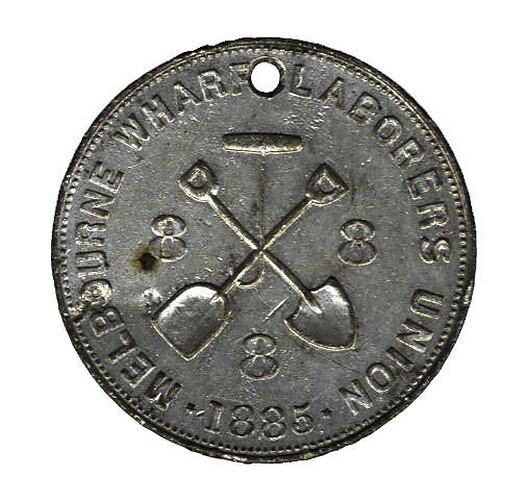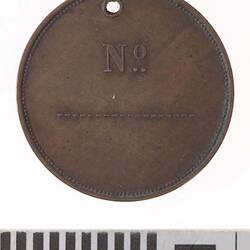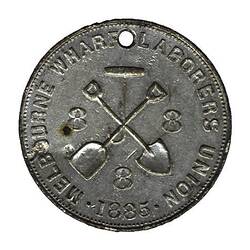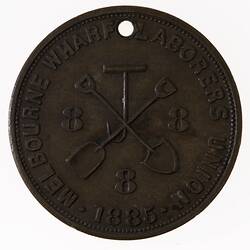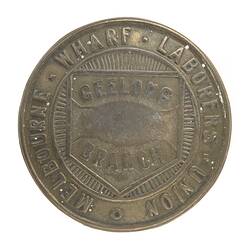In the early 1880s waterside workers on the Yarra River wharves near central Melbourne held local strikes, but were not unionised. In 1884 the workers staged their first total walkout over hours, pay and hiring practices, but were disadvantaged by lack of formal organisation and solidarity from other unions. Then in 1885, ship owners outraged the workers by refusing to let them attend the Eight Hours' anniversary march. Trades Hall representatives stepped in, and the Melbourne Wharf Laborers' Union was formed.
The union served a log on the employers in September, but it was refused. On 1 January 1886 about nine hundred workers shut down the Yarra shipping industry. Mass pickets effectively prevented deliveries, with Port Phillip stevedores refusing to work ships diverted from the Yarraside. Yardmen, draymen and wharf labourers of Geelong also went on strike. The Employers' Union declared it 'the bounden duty of every employer' to support the waterfront workers, and put pressure on the one company which had settled. Ship owners responded by offering work to unemployed workers from other states. Ninety-four men came from Adelaide, but were won over by the unionists. Some farmers were willing to load the potatoes they delivered to the quayside, but the main effect of these strike-breaking efforts was to anger the Seamen's Union, which banned vessels carrying scabs. A series of union bans in other cities helped isolate Melbourne. After 18 days victory was finally secured for the strikers.
After the return to work, Professor Kernot of Melbourne University convened a Board of Arbitration comprising equal numbers of management and union representatives, which granted most of the workers' demands.
References:
Australian National University website http://www.anu.edu.au/polsci/marx/interventions/aftergold.htm
More Information
-
Keywords
-
Localities
-
Authors
-
Article types
